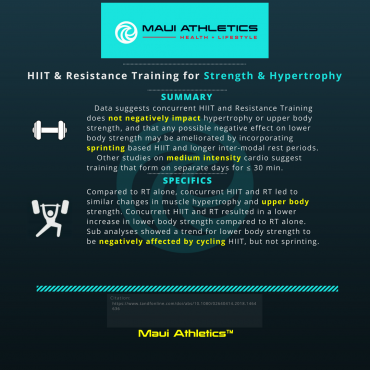Cardiovascular (Aerobic) Training: Cognitive and Mood Benefits
Cardiovascular training should be a staple in every routine for overall health purposes, regardless of goal. The health promoting effects on the heart and blood vessels are well known, but what about other beneficial effects from this type of training? It has been found that cardiovascular training also provides significant benefits when it comes to mood and cognition.

Health: With an ever increasing sedentary lifestyle, aerobic exercise is of paramount importance for cerebrovascular health. It has been shown that “prolonged uninterrupted sitting in healthy desk workers reduces cerebral blood flow.” Incorporating regular breaks to perform short-duration aerobic exercise during the work day has been shown to offset this reduction in cerebral flow.1 It is thus important for worker productivity, cognition, and health.
Mood: Aerobic exercise has been shown to help off-set mood disorders and depression. “Aerobic exercise can produce substantial improvement in mood in patients with major depressive disorders in a short time.”2 These benefits were significant in as few as 10 days. Cardio has also been shown to reduce social anxiety and depression (and improve subjective well-being) in those with social anxiety disorder.3 A typical acute bout of aerobic exercise increases positive-activated affect (the experience of positive thoughts and feelings), whereas the typical control condition produces decreases in PAA.4 This is especially significant when positive-activated affect is initially low.
Cognition: Aerobic exercise training is associated with modest improvements in attention and processing speed, executive function, and long-term memory.5 It has also been found in another study that a clear dose-response relationship exists between exercise and cardiorespiratory fitness. Cognitive benefits were apparent at low doses with possible increased benefits in visuo-spatial function at higher doses but only in those who adhered to the exercise protocol. An individual’s cardiorespiratory fitness response was a better predictor of cognitive gains than exercise dose (i.e., duration) and thus maximizing an individual’s cardiorespiratory fitness may be an important therapeutic target for achieving cognitive benefits.6 Ultimately, increasing cardiovascular health is associated with greater cognitive performance. Smoking, aerobic training, and diet are important components of cardiovascular health that impact upon cognition.7
Citations
- https://www.physiology.org/doi/abs/10.1152/japplphysiol.00310.2018
- https://bjsm.bmj.com/content/35/2/114
- https://onlinelibrary.wiley.com/doi/abs/10.1002/jclp.21863
- https://www.sciencedirect.com/science/article/pii/S1469029206000069
- https://www.ncbi.nlm.nih.gov/pmc/articles/PMC2897704/
- https://www.ncbi.nlm.nih.gov/pmc/articles/PMC4497726/
- https://www.ncbi.nlm.nih.gov/pmc/articles/PMC3940600/







